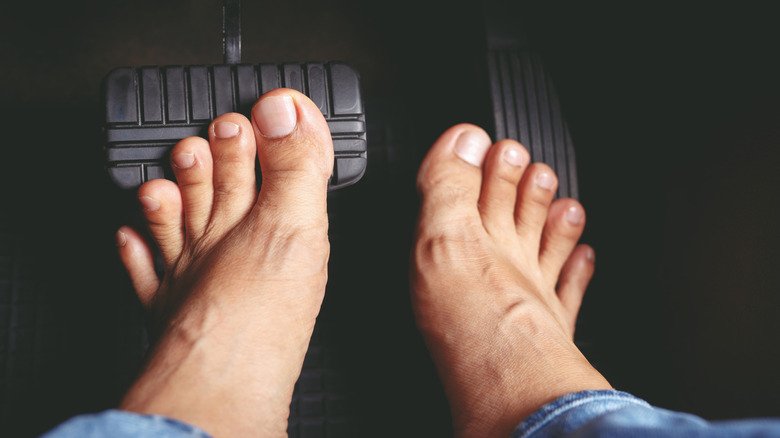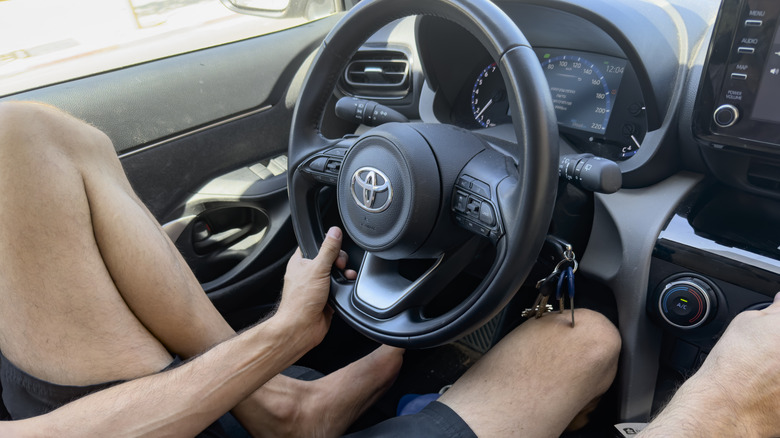Is It Illegal To Drive Barefoot In The US?
Most of us have heard in some form or another that driving barefoot is illegal. You may have heard it from your parents when you got your learner's permit or from a well-intentioned friend who swears they heard it from a police officer, and with that, you went on your way, never daring to drive without shoes, convinced you'd be breaking the law if you did so. If that's the case, you're not alone. After all, there are so many bizarre driving laws you've probably never heard of that, by comparison, driving barefoot being illegal seems pretty reasonable.
However, despite the widespread belief that driving barefoot in the US is illegal, it turns out that's not true — it's just another urban legend. Whether you're driving an SUV, minivan, sedan, or pickup truck, you can hop in and start driving shoeless. From Alaska to Florida and every state in between, there's no law on the books in any of the 50 states that require drivers to put on their shoes before getting behind the wheel. The same is true of riding a motorcycle barefoot unless you live in Alabama, where it's illegal. While no state has outlawed driving barefoot, there may be local ordinances in your municipality that prohibit it. To be on the safe side, you should check the local regulations to be sure.
What does the law say about driving barefoot?
If, for any reason, you need to drive barefoot, in almost all cases, you can rest assured that the law is on your side. Driving barefoot isn't illegal at the state or federal level. We know this thanks to Jason Heimbaugh, who wrote to the Department of Motor Vehicles in all 50 states to put the issue to rest once and for all. That means you won't have to worry about getting points on your driver's license if you're caught barefoot during a traffic stop. Still, just because something isn't illegal doesn't mean you should do it. Just like we take precautions to keep us safe while driving at night, it's a good idea to do the same when it comes to whether to wear footwear or go barefoot when driving.
Some states, like Ohio, don't outright prohibit driving barefoot, but they make it a point to clarify that doing so is unsafe. That's why you might want to think twice about driving barefoot — it could compromise your safety. For example, it's harder to apply pressure to a car's pedals when you're barefoot, and your response time may be slowed if you're not wearing shoes. You won't have the same traction when you go shoeless either, and your feet will be prone to sliding off the pedals if they're damp or sweaty. All of these factors could increase your chances of getting into an accident. Not to mention, many find driving without shoes to be uncomfortable. While driving barefoot is legal across the US, in states like Arizona, Arkansas, and California, if law enforcement determines your shoeless driving contributed to an accident, you could be held criminally or civilly liable.

